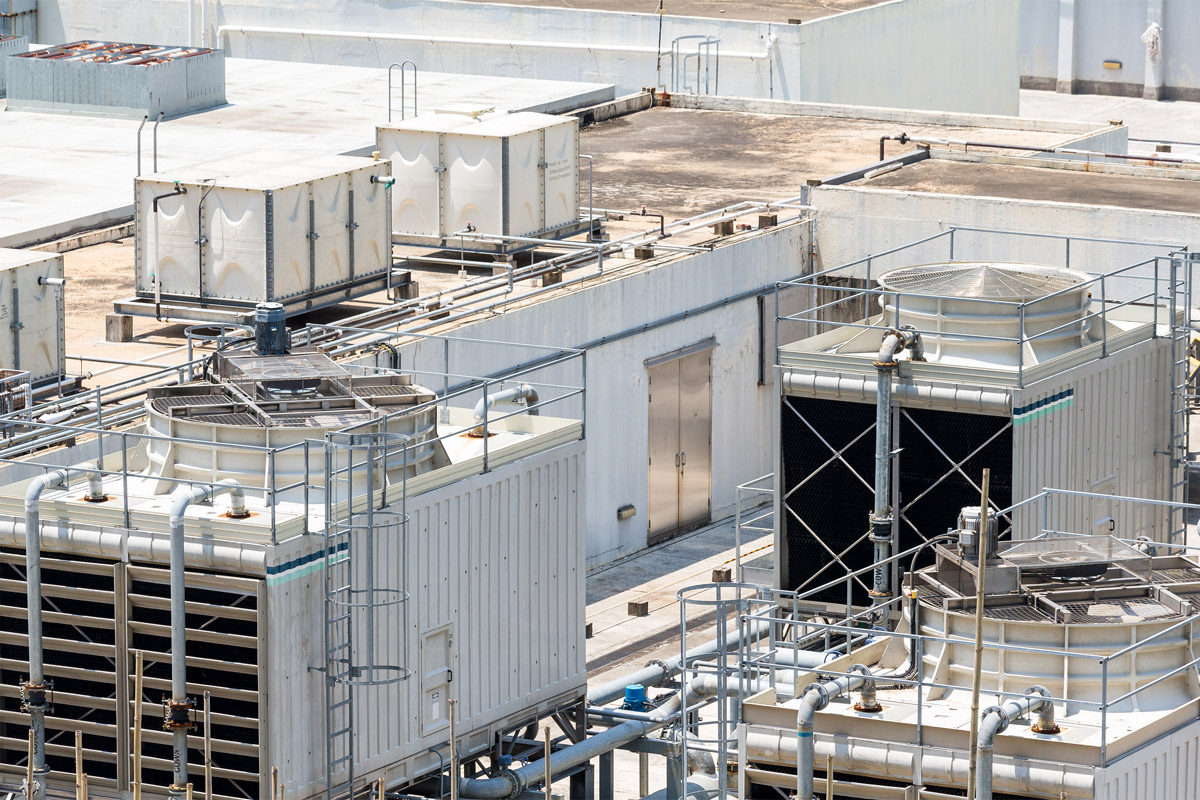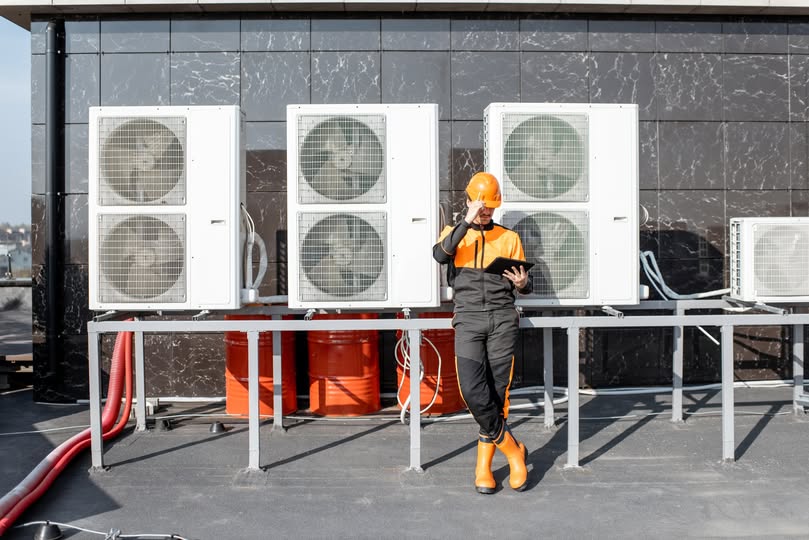Did you know that cooling towers are used in various industries to cool liquids and gases? They are often found in power plants, refineries, and petrochemical plants. Below, we will discuss what a cooling tower is, how they are used and what businesses may need a cooling tower.
What Is a Cooling Tower?
A cooling tower is a distinctive heat exchanger structure that removes heat from water on a massive scale. During operation, hot water comes in contact with the cold air, which cools down the water through evaporative and heat transfer. Cooling towers are designed as heat transfer systems, but contact between cold air and hot water also cools the water through evaporation. A cooling tower aims to cool hot water used by industrial processes like machines and HVAC systems.
How Is It Used?
The most common use for cooling towers is to remove heat from water-cooled chillers. In these systems, the water is circulated through a chiller, which removes heat from the process water or machinery coolant. The chilled water is then sent back to the cooling tower and cooled by contact with the air. The cooled water is then recirculated back to the chiller.
What Businesses Need Cooling Towers?
Any commercial setup that uses water-cooled chillers or HVAC systems will need a cooling tower. This includes those in various industries, such as power generation, manufacturing, food processing, shopping centers, and pharmaceuticals. Power plants, for example, use cooling towers to remove heat from the circulating water used to cool the steam turbines.
Small businesses use cooling towers to remove heat from the circulating water, and cool machinery, and equipment. Food processing businesses use cooling towers to remove heat from the circulating water, and cool food products. Clinics and pharmacies use cooling towers to constantly cool premises with pharmaceutical products.
Cooling towers are a critical component of many commercial cooling systems. They remove heat from water-cooled chillers, HVAC systems, and machinery. Without cooling towers, many businesses would not be able to operate.
At A Plus Quality Inc, we provide installation, maintenance, and repair services for your cooling needs in the Toronto and GTA area. Contact us today to book an appointment.
Are you a loyalty program member of A-Plus Quality? Just for reading our blog post today, we would like to give you 1000 bonus points, add them to your account with the code: AP22JL3. Not a member? Don't worry, sign up and start earning points today. Download the App and add perk codes to get your bonus. New members receive a free $50 welcome gift! Do not miss the opportunity to get more points, check out our Facebook and Instagram for more codes.



